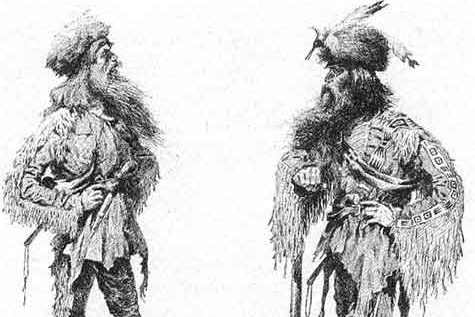History professor Kate Grandjean is a Frederick Burkhardt Residential Fellow at UConn’s Humanities Institute this year.
A native of the Nutmeg State, she is working on her fellowship project titled “In the Kingdom of Devils: The Harpe Murders and the Legacies of the American Revolution.”
The project is a book about the violent legacies of the American Revolution and their effects on brothers Micajah and Wiley Harpe, two of the most notorious killers in American history.
The Harpes committed close to 30 murders in the 1790s in Tennessee, Kentucky, Illinois, and Mississippi. They did not kill for money or possessions. They appeared to be striking back against the young nation, after siding with British loyalists during the Revolutionary War. They killed men, women, and children.
Grandjean is an associate professor of history at Wellesley College and was drawn to Storrs for her research because of the scholars in UConn’s history department, who specialize in many aspects of early American history, and the wide range of research materials in the UConn Libraries covering criminality, psychology, and history.
Listen to an interview with Grandjean on the UConn 360 podcast:
For full episodes of the UConn 360 podcast, visit uconn.edu/uconn360-podcast.



